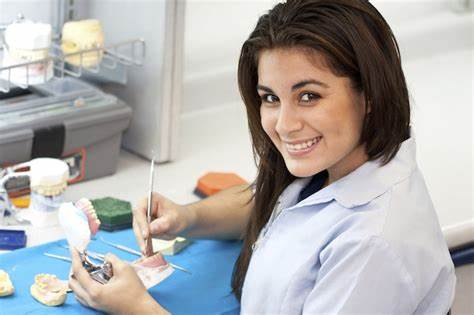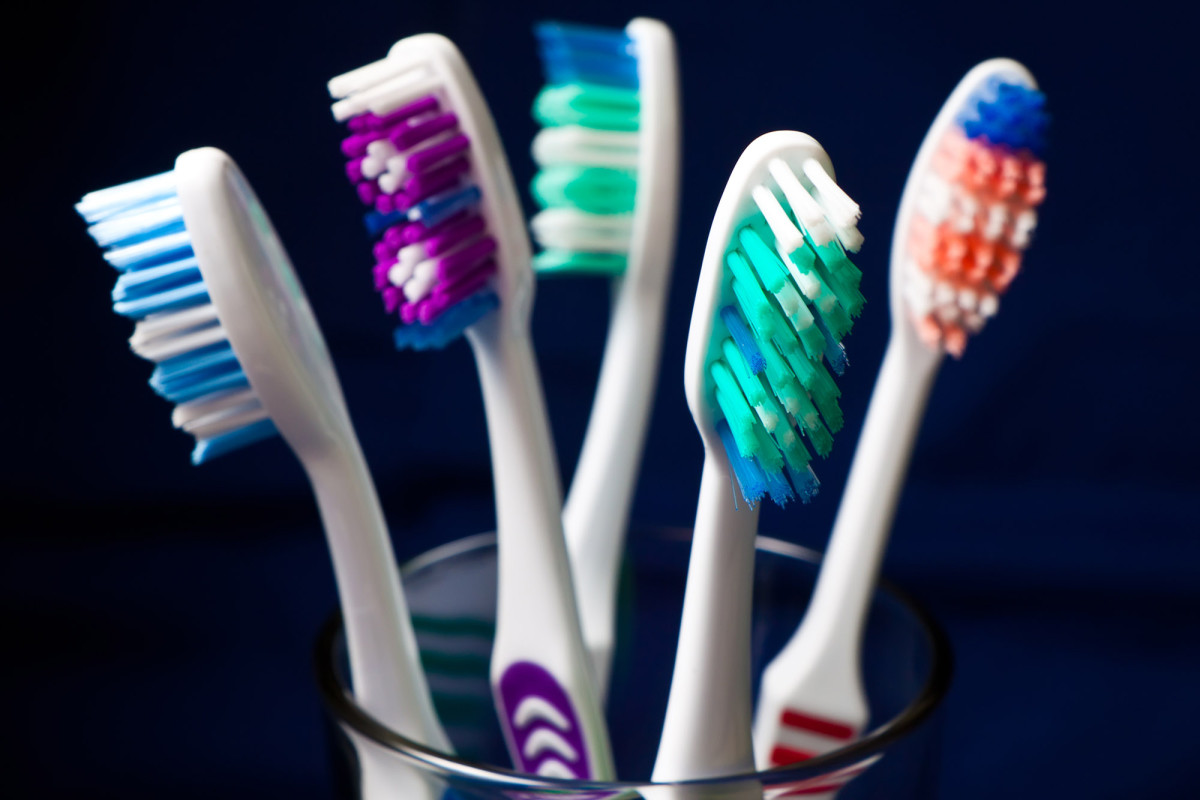Ten oral health tips for infants and toddlers
When did you start brushing your teeth? When is your child undergoing the first dental exam? How to prevent children from tooth decay? Read these simple tips to provide good oral health for babies and toddlers 0-3 years old.
1. Breastfeeding is best for babies
The main food for the first 6 months of life is breast milk or infant formula. Once your baby is full, take it out of the breast or bottle. For support and advice on breastfeeding, please consult your maternal and child health nurse.
2. Don't use a bottle to let the baby sleep
When the baby goes to sleep with the bottle, some milk will remain in the mouth and teeth. This can cause the teeth to rot. Once your baby is full, take it out of the breast or bottle. If your child has night feeding, remember:
Between 6 and 12 months, your baby can change from a bottle of wine to a cup. Young children (1-3 years old) can only drink with a cup. Remember, holding a cup and drinking water is a new skill that your baby needs to learn.
4. Water is the best drink for young children
Water should be the main drink, and young children should drink tap water all day. In addition, pure milk is a healthy drink for children over 12 months. For infants under 12 months, tap water should be boiled and cooled before drinking. Most of Victoria's tap water contains fluoride. Fluoride prevents teeth from rot. Remember, bottled water bought by stores is usually free of fluoride.
5. Pure milk is the choice of healthy drinks
Infants under 12 months should drink breast milk or infant formula. Milk is a good source of calcium that makes teeth strong and healthy. Children over 12 months can drink pure whole milk. After 2 years of age, low-fat milk is more suitable. Remember, scented milk adds sugar, which can cause teeth to rot.
6. No need for juice or sweet drinks for babies and toddlers
Juices and sweet drinks can cause tooth decay. Children under 12 months do not need or recommend juices and juice drinks. “Unsweetened” juices contain natural sugars that can also cause tooth decay. Sweet drinks include: soft drinks, juices, sports drinks, hot drinks, tea drinks, fruit drinks and energy drinks. The acid contained in slimming soft drinks can also damage your teeth.
7. A healthy diet and snacks are important for healthy teeth
Children 6 months old can start eating solid food. Babies don't like sweets and sweets and drinks. This is what they are used to when they often eat sweets and drinks. Children from 12 months of age should enjoy a variety of healthy foods similar to other family members. Children learn to eat by observing their parents and other family members. Sugar is found in many common foods and snacks. Eating foods high in sugar can cause tooth decay.
8. Start cleaning teeth when the baby appears (6 months)
Cleaning and brushing removes plaque (accumulation on the teeth) that causes tooth decay. You can wipe your baby's teeth with a soft cloth or brush your teeth with a soft toothbrush and water. After 18 months, I began brushing my teeth with pea-sized low-fluoride toothpaste. Encourage your child to spit out toothpaste after brushing your teeth, but do not rinse. Clean all surfaces of the teeth and gums twice a day (after breakfast and before going to bed). Children need an adult to help them brush their teeth until they are 7 to 8 years old.
9. Children should have an oral health assessment before the age of 2 years
The first oral health assessment can be provided by a dentist or other oral health professional, maternal and child health nurse or doctor. Regular inspections help to identify problems early. Early caries can be treated. Learn more about free or low-cost public dental services for children.
10. Oral health is important to the whole family
The baby is born with no bacteria that cause tooth decay. Parents and caregivers can pass the bacteria to the baby. To prevent this from happening, families can do the following:
1. Breastfeeding is best for babies
The main food for the first 6 months of life is breast milk or infant formula. Once your baby is full, take it out of the breast or bottle. For support and advice on breastfeeding, please consult your maternal and child health nurse.
2. Don't use a bottle to let the baby sleep
When the baby goes to sleep with the bottle, some milk will remain in the mouth and teeth. This can cause the teeth to rot. Once your baby is full, take it out of the breast or bottle. If your child has night feeding, remember:
- Always take them out of bed and feed them.
- Be sure to hold them when feeding them with a bottle.
- Avoid letting the baby eat from the bottle without supervision.
- They may fall asleep while the bottle is still in their mouth, increasing the risk of suffocation, ear infections and tooth decay.
3. A 6-month-old child can start drinking with a cup
Between 6 and 12 months, your baby can change from a bottle of wine to a cup. Young children (1-3 years old) can only drink with a cup. Remember, holding a cup and drinking water is a new skill that your baby needs to learn.
4. Water is the best drink for young children
Water should be the main drink, and young children should drink tap water all day. In addition, pure milk is a healthy drink for children over 12 months. For infants under 12 months, tap water should be boiled and cooled before drinking. Most of Victoria's tap water contains fluoride. Fluoride prevents teeth from rot. Remember, bottled water bought by stores is usually free of fluoride.
5. Pure milk is the choice of healthy drinks
Infants under 12 months should drink breast milk or infant formula. Milk is a good source of calcium that makes teeth strong and healthy. Children over 12 months can drink pure whole milk. After 2 years of age, low-fat milk is more suitable. Remember, scented milk adds sugar, which can cause teeth to rot.
6. No need for juice or sweet drinks for babies and toddlers
Juices and sweet drinks can cause tooth decay. Children under 12 months do not need or recommend juices and juice drinks. “Unsweetened” juices contain natural sugars that can also cause tooth decay. Sweet drinks include: soft drinks, juices, sports drinks, hot drinks, tea drinks, fruit drinks and energy drinks. The acid contained in slimming soft drinks can also damage your teeth.
7. A healthy diet and snacks are important for healthy teeth
Children 6 months old can start eating solid food. Babies don't like sweets and sweets and drinks. This is what they are used to when they often eat sweets and drinks. Children from 12 months of age should enjoy a variety of healthy foods similar to other family members. Children learn to eat by observing their parents and other family members. Sugar is found in many common foods and snacks. Eating foods high in sugar can cause tooth decay.
8. Start cleaning teeth when the baby appears (6 months)
Cleaning and brushing removes plaque (accumulation on the teeth) that causes tooth decay. You can wipe your baby's teeth with a soft cloth or brush your teeth with a soft toothbrush and water. After 18 months, I began brushing my teeth with pea-sized low-fluoride toothpaste. Encourage your child to spit out toothpaste after brushing your teeth, but do not rinse. Clean all surfaces of the teeth and gums twice a day (after breakfast and before going to bed). Children need an adult to help them brush their teeth until they are 7 to 8 years old.
9. Children should have an oral health assessment before the age of 2 years
The first oral health assessment can be provided by a dentist or other oral health professional, maternal and child health nurse or doctor. Regular inspections help to identify problems early. Early caries can be treated. Learn more about free or low-cost public dental services for children.
10. Oral health is important to the whole family
The baby is born with no bacteria that cause tooth decay. Parents and caregivers can pass the bacteria to the baby. To prevent this from happening, families can do the following:
- Everyone brushes their teeth twice a day with their own toothbrush.
- Everyone (including pregnant women) has regular dental checkups and any cavities.
- Try to avoid putting anything in your baby's mouth (such as sharing a spoon and "cleaning" the dummy into your mouth).
YOU MAY ALSO LIKE





